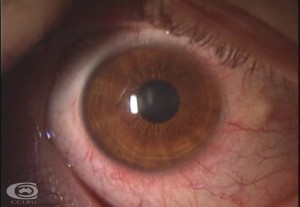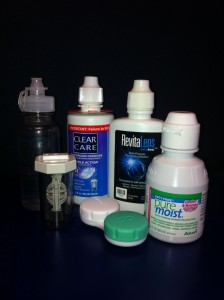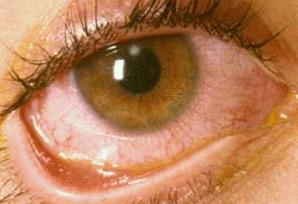There are many advantages to wearing contact lenses. There are disadvantages too. If you are compliant with care and replacement of your contact lenses, the risks are reduced greatly.
Be aware that serious injury to the eye, scarring of the cornea and loss of vision may result from problems associated with wearing contact lenses and using lens care products. Eye problems, including corneal ulcers, can develop rapidly and lead to loss of vision. Immediately call or visit Westside Optometry for persistent symptoms of any eye discomfort, watering, vision change, or redness.
Extended Wear
Overnight wear of contact lenses has been shown to increase the risk of contact lens related complications. Do not wear your contact lenses for extended wear (24 hours a day including sleep) unless I’ve directed you to do so.
lens related complications. Do not wear your contact lenses for extended wear (24 hours a day including sleep) unless I’ve directed you to do so.
Smoking
Smoking increases the risk of serious problems with contact lens wear, especially when lenses are worn overnight. If you smoke, be sure to inform me.
Following Directions
Be sure to follow the exact instructions from my contact lens technician, myself and the contact lens manufacturer provide about how to use and care for your contact lenses and lens care products, including lens cases. Failure to do so may put you at risk of developing a serious eye infection.
Use Proper Lens Care Solutions

Do not use saliva, tap water, distilled water, or homemade saline solution for any purpose in caring for your lenses. The use of these solutions has been associated with serious eye infections including Acanthamoeba keratitis, a corneal infection that is resistant to treatment and cure.
Adverse Effects (Possible Problems)
It is possible that problems can occur and may be accompanied by one or more of the following conditions:
- Moderate to severe eye pain not relieved by removing the lens
- Feeling of something in the eye
- Unusual eye secretions
- Eye redness
- Sensitivity to light (photophobia)
- Eyes burn, sting or itch
- Eyes water
- Reduced sharpness of vision
- Rainbows or halos around objects
- Uncomfortable lens
- Feeling of dryness
 A serious condition such as corneal ulcer or eye infection may be present and may progress rapidly. Even less serious reactions such as a scratched cornea must be treated promptly to avoid serious complications.
A serious condition such as corneal ulcer or eye infection may be present and may progress rapidly. Even less serious reactions such as a scratched cornea must be treated promptly to avoid serious complications.
What to do if a Problem Occurs
If you experience any of the above signs or symptoms, immediately remove your lens(es)
1. If the discomfort stops, then look closely at the lens(es):
- If the lens is damaged in any way, DO NOT put the lens back on your eye. Discard the damaged lens.
- If the lens(es) have dirt, an eyelash or other foreign body on them, and the lens(es) appear undamaged, thoroughly clean, rinse and disinfect the lens(es), then reinsert. After reinsertion, if the problem continues, remove the lens(es) immediately and contact Westside Optometry.
2. If discomfort continues after you have removed your lens(es):
- Immediately contact Westside Optometry
- Do not reinsert a new or spare lens onto an eye that is red, irritated or painful. A new lens may hide symptoms and delay treatment.
When Lenses Should Not Be Worn
Contact lenses should not be worn under certain general health and eye conditions. I take into consideration many factors to determine if continued contact lens wear is right for you. These include the following:
- Inflammation or infection in or around the eye or eyelids
- Excessive dryness of the eyes that makes contact lens wear uncomfortable
- Any condition which reduces corneal sensitivity
- Systemic diseases that may be affected by or impact lens wear
- Allergic conditions, reactions or ocular irritation caused or exaggerated by lens wear or certain preservatives in lens care products
- The use of any medication, including some eye medications, that shouldn’t be used with or interferes with contact lens wear
- If eyes become red or irritated
General Guidelines for Safe Contact Lens Wear
While wearing your contact lenses, your eyes should look well, feel comfortable and your vision should be clear.
- Your lenses are provided to you in a foil sealed plastic container. Never use a lens if the container seal is broken, as damage or contamination may have occurred.
- Do not wear your lenses longer than prescribed, no matter how comfortable the lenses feel. Doing so increases the risk of adverse effects.
For a printable version of the above cautions for contact lens wear, click here.